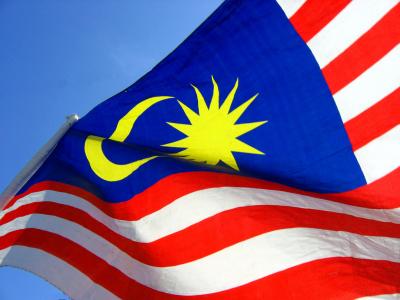 The United Nations Human Rights Council officially adopted the outcome report on Malaysia’s second universal periodic review (UPR) today. In total, the Malaysian government accepted 150 recommendations out of the 232 that it received during the review in October 2013. Disappointingly, Malaysia rejected all of the recommendations to accede to the remaining six key human rights conventions. In addition, the Malaysian government also rejected recommendations to remove reservations on human rights conventions to which Malaysia has acceded.
The United Nations Human Rights Council officially adopted the outcome report on Malaysia’s second universal periodic review (UPR) today. In total, the Malaysian government accepted 150 recommendations out of the 232 that it received during the review in October 2013. Disappointingly, Malaysia rejected all of the recommendations to accede to the remaining six key human rights conventions. In addition, the Malaysian government also rejected recommendations to remove reservations on human rights conventions to which Malaysia has acceded.
“It is disappointing that while Malaysia received the most recommendations regarding the abolition of the death penalty, all such recommendations were rejected,” said Yap Swee Seng from SUARAM, the co-secretariat of the Coalition of Malaysian NGOs (COMANGO).
“The death penalty is cruel, inhumane and degrading treatment. There are currently about 900 death row prisoners and there were at least two attempts of executions in 2014 so far. Malaysia should take immediate steps towards the abolition of the death penalty for all offences. In the meantime, there should be an official moratorium on all executions, and commute all death sentences to prison terms.”
Malaysia rejected recommendations to accede to the Convention on Torture as well as to abolish the Security Offences (Special Measures) Act, Prevention of Crimes Act and the Dangerous Drugs Act.
“We are disappointed that Malaysia rejected all seven recommendations to remove its reservations to CEDAW, CRC, and CRPD,” commented Yu Ren Chung of the Women’s Aid Organisation (WAO). “Malaysia stated during its review that it is ‘unfounded’ that Malaysia’s ‘Islamic Family Law … discriminates Muslim women on marriage issues.’ This means Malaysia should have no objections to removing its reservations to Article 16 of CEDAW, on equality in marriage.” Yu added, “Malaysia rejected Canada’s recommendation to criminalise marital rape. When a woman gets married, she is still entitled to say no.”
We welcome the government’s invitation to the Special Rapporteurs on the Right to Health and Trafficking of Persons for official visits. However, we are concerned that there are still many requests for official visits by other Special Procedures that are pending approval. We note that although the government has agreed to welcome the Special Rapporteur on Freedom of Assembly and Association, no dates have yet to be set for the visit.
Yasmin Masidi from Empower, the co-secretariat of COMANGO said, “Despite endorsing the UN Declaration on the Rights of Indigenous Peoples (UNDRIP) twice in 2007 Malaysia now rejects all recommendations to ensure that laws and policies concerning indigenous peoples are in line with the declaration.” She also noted with disappointment that “Malaysia also rejected a recommendation to address issues highlighted in the National Inquiry into the Land Rights of Indigenous Peoples pending the outcome of a Task Force set up to review the findings of the Inquiry. Indigenous representatives make up only 30% of this Task Force.”
Recommendations on sexual orientation and gender identity (SOGI) were rejected outright by Malaysia. “Violence against LGBT persons continues with impunity by the police, religious officials and some members of the public,” said Thilaga Sulathireh of Seksualiti Merdeka. “Restrictions on freedom of assembly, association and expression equally affect LGBTI persons in Malaysia. It is of great concern that issues pertaining to sexual orientation and gender identity continue to be politicised to further create religious and racial divide in Malaysia,” added Thilaga.
Nearly all NGO speakers who addressed the UN Human Rights Council during the adoption session raised their concerns about the attempted banning of COMANGO, and the continued acts of reprisals by the government of Malaysia against it. The chairperson of SUHAKAM urged the Malaysian Government not to see NGO engagement in the UPR process as a threat, and that NGOs that do so should not be punished. Attacks by non-state actors against COMANGO were also highlighted.
Regretfully, the Malaysian representative did not address these issues during his right to reply.
“The Malaysian government must end the attacks, with impunity, against human rights defenders both from NGOs and other public figures. It should not support groups bent on suppressing civil society voices,” says Jerald Joseph from KOMAS.
During the debate today, the Malaysian government stated that it would make more widely available the National Human Rights Action Plan, including disseminating it at the grassroots level. It also said that it would better engage with NGOs.
“It is unfortunate that the government engages civil society through SUAHAKAM, which is not a civil society body. We call for direct engagement with us,” said Honey Tan, spokesperson for COMANGO.
Tan also called on the Malaysian government to translate the UPR outcome report including the Addendum and the Corrigendum into Bahasa Malaysia, Mandarin, Tamil, Kadazan, Iban and other languages.
She added, “There should be two consultations a year, and adequate notice should be given before the consultations are called. Regular face-to-face meetings will help build better relationships as well. After all, both NGOs and the Malaysian government want better lives for all the peoples who live in Malaysia.”
If society is to believe that the government is indeed committed to the spirit of the UPR, public pronouncements must be translated to reality on the ground.